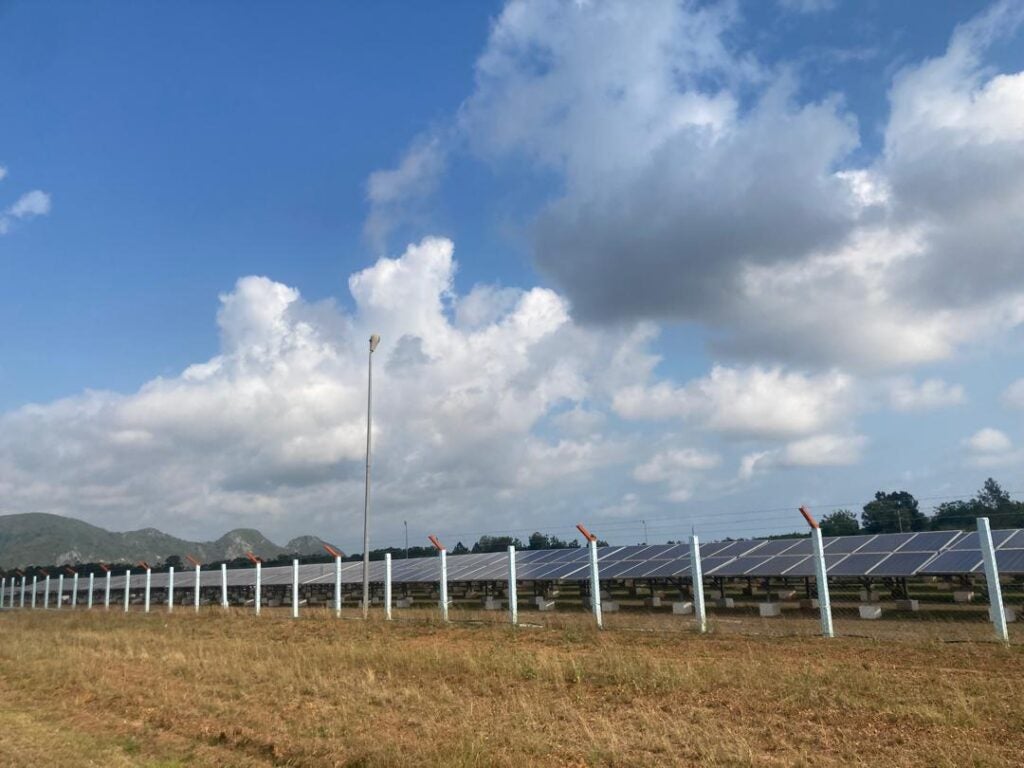Building a cleaner, more resilient energy system in Cuba: opportunities and challenges report blog
 By Lila Harmar and Valerie Miller
By Lila Harmar and Valerie Miller
The start of summer hurricane season in the Caribbean has only just begun, yet the region has already weathered its first category five tropical storm, Beryl. Beryl caused major damage to homes, power lines and more across the southeast Caribbean, fueled by high temperatures in the Atlantic. The increase of extreme weather events fueled by climate change will continue to have outsized impacts on island nations that often face annual hurricane recovery efforts. Beryl missed Cuba but brought back memories of Ian in 2022, a tropical storm that also rapidly strengthened into a massive hurricane in very little time, causing damage across the region.
The threat of a more intense hurricane season this year due to warmer than average ocean water temperatures is worrying for Cuba because many parts of the country already face frequent blackouts due to the age and instability of Cuba’s electric grid. This summer is predicted to be the hottest on record, requiring more energy for cooling homes and businesses. Cuba is in the midst of an economic and energy crisis, but with domestic action and international support, there is opportunity for change — the Building a Cleaner, More Resilient Energy System in Cuba: Opportunities and Challenges report by EDF and the Columbia Sabin Center for Climate Change Law presents the current context and recommendations for improvements over the short, medium and long-term.
Building a cleaner, more resilient energy system in Cuba: opportunities and challenges report blog Share on XThe report provides background information on Cuba’s climate and the history of its electric grid, investigates the current state of its functioning and analyzes the challenges currently facing the system. The report highlights the issue that not only is Cuba’s energy infrastructure in a precarious state of aging and disrepair, but also that its entire energy system relies heavily on external aid and imported fossil fuels.
This past June, Mexico resumed shipping oil to the island, a needed boost in the current system but one that underscores this foundational problem with Cuba’s electric grid. Cuba is dependent on fossil fuels for energy generation and relies on oil imports of crude and fuel oil from Venezuela and Russia, as well as floating power plants provided through an agreement with a Turkish business group. The lack of adequate energy generation, coupled with deteriorating energy transmission infrastructure and barriers to foreign investment due to U.S. policy toward Cuba, result in risks for Cubans and problems for everyday activities on the island, especially in conditions of severe heat.
While the issues facing the Cuban energy grid are wide-ranging, solutions exist across scales of impact. Building a Cleaner, More Resilient Energy System in Cuba recommends numerous ways by which domestic policy in Cuba can prioritize working towards a more sustainable, resilient grid — especially by investing in the energy transition — and ways in which international cooperation can support these goals. Among the international-level recommendations, the report suggests the benefits of dialogue between the United States and Cuba in promoting renewable energy in Cuba. Despite the longstanding tensions between the countries, there is opportunity for cooperation especially in the less politically fraught realm of scientific and climatic expertise.
The report also details ways in which other islands in the Caribbean, including the Bahamas and Puerto Rico, have used external investments to stimulate their own transitions towards more renewable and resilient energy grids. While these islands have varying degrees of applicability to the Cuban context, both Puerto Rico and the Bahamas were able to pioneer renewable energy projects by leveraging funds from NGOs.
With support from EDF, 45 low-income homes received solar photovoltaic panels and battery storage systems as part of a community-led solar energy project in Culebra, Puerto Rico, a small island municipality whose residents and energy infrastructure suffered heavily in the wake of Hurricanes Irma and Maria in 2017. These solar microgrid and battery storage systems allowed the Culebra residents with the systems to maintain essential energy throughout hurricane Fiona in September, 2022, when others on the island lost power. Distributed clean energy systems like those in Culebra can help communities be more resilient in the face of storms and the aftermath, providing critical energy when centralized systems fail. This solution can also work in Cuba.
The Bahamas was able to leverage external nongovernmental organization investment to add solar panels to three schools so that they can serve as resilience hubs in the event of hurricanes which threaten the island. These cases represent the opportunity available to Cuba to expand its involvement in international collaboration on clean energy projects. In fact, EDF is making strides by supporting trainings in clean energy solutions in a few Cuba communities via an ecosystem-based adaptation project to increase community resilience funded by the Caribbean Biodiversity Fund. Cuba already has a track record of participation in international conservation and sustainability projects, and openness to further collaboration on clean energy projects, especially solar, would benefit the Cuban people. While small-scale, such renewable energy initiatives can reduce pressure on the energy grid and provide relief in especially vulnerable places.
Due to rising temperatures and increasingly unreliable energy infrastructure, action to update Cuba’s energy grid is urgently necessary. Though the country is facing an ongoing economic crisis, potential for improvement exists especially in the opening of international collaborations with partners in the Caribbean and nongovernmental organization and in increasing dialogue between Cuba and the United States. Some of these steps may seem unlikely, but — as history has long borne out — with urgent need comes the potential for unprecedented collaboration.










